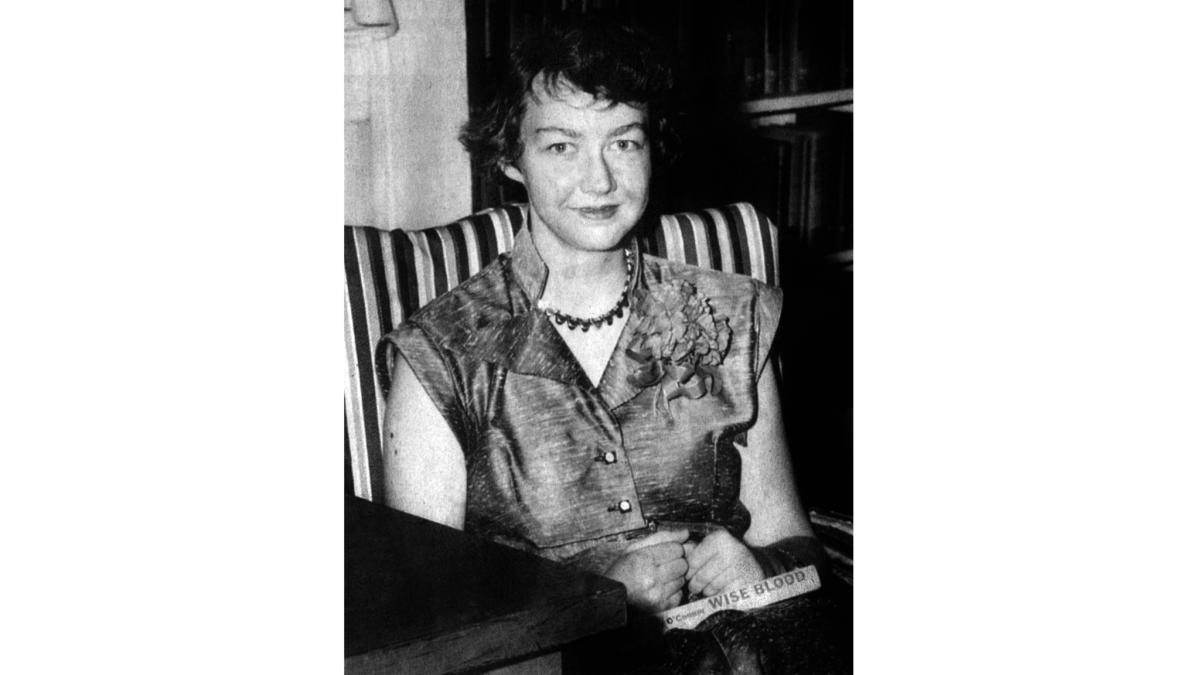Happy birthday Flannery O’Connor, avatar of the Southern grotesque

Flannery O’Connor, who would have been 90 Wednesday, is regarded as an avatar of the Southern grotesque. That this is both the case and a kind of reductionist stereotype is precisely the sort of irony the author enjoyed. “I have found,” she wrote in her essay “The Grotesque in Southern Fiction,” “that anything that comes out of the South is going to be called grotesque by the Northern reader, unless it is grotesque, in which case it is going to be called realistic.”
O’Connor walked that line throughout her short career — she died in August 1964 of lupus at the age of 39 — between the real and the exaggerated, the natural and the grotesque. She didn’t write a lot, two novels and two collections of short stories, but it is a body of work that lingers for its portrayals of human yearning and misery.
A devout Catholic — “Dear God,” she begins her brief and piercing “Prayer Journal,” written when she was in her early 20s, although not published until 2013, “I cannot love Thee the way I want to” — she saw faith as both redemptive and complicating, and sin as not only inevitable but also necessary.
Such an aesthetic, moral or literary, infuses O’Connor’s work, from her first short story, “The Geranium” to her last, “Judgement Day.” There, an old man named Tanner moves from Georgia to live with his daughter in New York, where his blindness about race leads to tragedy.
Something similar takes place in the transcendent “Everything That Rises Must Converge,” in which a young man named Julian, self-conscious about his own social enlightenment, takes the bus downtown with his mother, judging her harshly for her archaic attitudes. Only at the end of the story, after she has been knocked down for trying to give a penny to an African American child, does he realize the depths of his dependency.
“He turned her over,” O’Connor writes in the final paragraphs of the story. “Her face was fiercely distorted. One eye, large and staring, moved slightly to the left as if it had become unmoored. The other remained fixed on him, raked his face again, found nothing and closed.
“‘Wait here, wait here!’ he cried and jumped up and began to run for help toward a cluster of lights he saw in the distance ahead of him. ‘Help, help!’ he shouted, but his voice was thin, scarcely a thread of sound. The lights drifted farther away the faster he ran and his feet moved numbly as if they carried him nowhere. The tide of darkness seemed to sweep him back to her, postponing from moment to moment his entry into the world of guilt and sorrow.”
It is a signature O’Connor moment, one in which all the posturing gets stripped away and we are left to confront ourselves.
Despite having written two novels, “Wise Blood” and “The Violent Bear It Away,” O’Connor was not really a novelist; the first, which appeared in 1952, is a pastiche of several early stories, while the second, published in 1960, grew out of a short piece published five years before. None of that matters, though, for she was, and remains, among the sharpest of all short fiction writers, an author with the grace, the depth, the mastery of a Chekhov or a Joyce.
Place, identity, faith, family, race: All of them bubble up in the brew of O’Connor’s fiction, which is often funny and frightening at once. Or perhaps it’s more accurate to say that she will not allow herself to be pinned down.
I think of “A Good Man is Hard to Find,” my favorite of all her stories, in which a family on vacation runs into an escaped killer known only as the Misfit. It’s a brutal piece of writing, although that sneaks up on us slowly, as the narrative shifts from mockery (of the grandmother and her prejudices) to despair.
“Jesus!” the old lady calls out, referring to her savior or her killer, or perhaps to both. “You’ve got good blood! I know you wouldn’t shoot a lady! I know you come from nice people! Pray! Jesus, you ought not to shoot a lady. I’ll give you all the money I’ve got!”
The Misfit listens for a moment, then pumps three bullets into her chest. “She would of been a good woman,” he concludes, “if it had been somebody there to shoot her every minute of her life.”
There it is, that mix of humor and horror, the sense that we are always somewhere in between. For O’Connor, this is a point of faith as much as her religion, this recognition of our passage through a fallen world.
twitter: @davidulin
More to Read
Sign up for our Book Club newsletter
Get the latest news, events and more from the Los Angeles Times Book Club, and help us get L.A. reading and talking.
You may occasionally receive promotional content from the Los Angeles Times.








